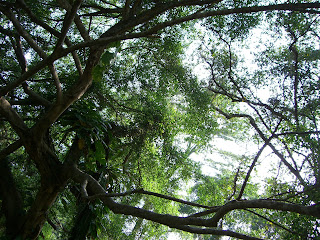
Source: https://zone.artizans.com/cartoon/n/NATO.html#
On 2 August, The Economist ran a story that said "Afghan soldiers are better trained and happy to fight".
22 days later, on 24 August, Afghanistan President Hamid Karzai fired an Afghan Army general and another officer for their roll in a US air strike on civilian targets and for concealing information about the deaths.
Tensions continue to escalate with new reports everyday of civilian deaths by US air strikes. The Guardian, Voice of America and the AFP reported that the Afghan government is demanding a review of foreign military activities because Nato and US troops have been launching air strikes at civilian and conducting "uncoordinated house searches and illegal detention of Afghan civilians".
US officials said that they killed 25 militants and only 5 civilians, but a United Nations investigation into the casuality says the U.S. air strike on Friday (22 Aug) killed 90 civilians - 60 of whom were children.
Nato's response?
NATO and U.S. military officials insist they take great care in targeting air strikes, but militants frequently hide in civilian areas. - Voice of America
Now, even if they did kill 25 militants in that air strike would that justify killing 90 other civilians or even 5? Where do we draw the line?
This is not an isolated incident. In July 11, a US missile that misfired wiped out a Afghan wedding killing 47 civilians, including the bride.
US officials said that they killed 25 militants and only 5 civilians, but a United Nations investigation into the casuality says the U.S. air strike on Friday (22 Aug) killed 90 civilians - 60 of whom were children.
Nato's response?
NATO and U.S. military officials insist they take great care in targeting air strikes, but militants frequently hide in civilian areas. - Voice of America
Now, even if they did kill 25 militants in that air strike would that justify killing 90 other civilians or even 5? Where do we draw the line?
This is not an isolated incident. In July 11, a US missile that misfired wiped out a Afghan wedding killing 47 civilians, including the bride.
Source: https://zone.artizans.com/cartoon/a/Afghan_war.html
As a reader abstract from the reality of this 'war on terror', civilian deaths have come to mean nothing more than just a statistic in a news report.
But the July incident should really make us realise the reality in Afghanistan - that normal people live and celebrate their happiest moments literally in the midst of war and death.
Killing innocent civilians will do nothing to help the fight against terrorism. It will only fuel resentment among the Afghan locals which will in turn drive regular, non-radical Afghans to support the Taliban or Al Qaeda.
Can the world then blame these so-called terrorists for blowing themselves up in crowded markets or fighting their own government, which is in alliance with a nation that fires missiles at innocent people and feel justified in it?
It is difficult enough to live in poverty and not resent it. But to expect them to see their innocent children and loved ones get killed and detained indiscriminately by the people who claim to be fight for their freedom and not resent it, is really asking for a magnanimity that is beyond human capacity.

















